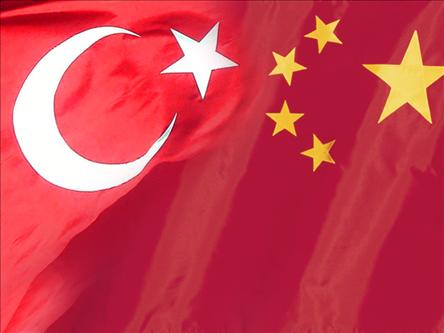As a NATO member state, Turkey is committed to the development of a collective ballistic missile defence system for all NATO countries. However, late last month, Turkey announced that China is at the top of a list of potential suppliers of the technology needed to develop a stand-alone Turkish ballistic missile defence system. Turkish representatives have said that the Chinese technology, at $3.4 billion, is far cheaper than the price on offer from US, European, and Russian manufacturers. They have also received a guarantee that the technology will be fully interoperable with the NATO-wide program, though this has been disputed by the US State Department.
Should Turkey pursue this deal, troubling consequences would follow. There is the potential that China would manipulate the technology it supplied to serve its own intelligence interests. More seriously, the China option would isolate Turkey within NATO and potentially cause an irreparable rift.
Republican senators have petitioned the Obama administration to lean on Turkey to put a halt to talks with the China Precision Machinery Import-Export Corporation, a “state-owned enterprise” engaged in missile defence. They point out that Chinese hackers have already compromised US programs by poaching advanced information about US defences that could help accelerate development of China’s own weapons systems. This makes it extremely likely that China will compromise the technology it sells to Turkey by including a “backdoor” that may be accessed at some future date to extract intelligence about NATO defences. Should Turkey go through with the deal, the senators say it should be expelled from NATO’s Air Defense Ground Environment programme.
[captionpix align=”left” theme=”elegant” width=”300″ imgsrc=”http://www.army-technology.com/projects/arrow2/images/arrow_2.jpg ” captiontext=”Turkey could be expelled from NATO’s Air Defense Ground Environment Programme”]
More troubling than the technical complications of the deal is what it means in the context of the US-China struggle for influence in the Middle East and Asia. In an earlier article on 29 September, I discussed China’s wariness of the recent American “pivot” towards Asia, and China’s strategy of extending its own sphere of influence by creating economic ties with as many countries as possible. The deal with Turkey fits squarely into this strategy. But it is a deal fraught with danger for Turkey.
Taking the China option in missile defence would mean cooperating on a matter of defence with a country that has friendly relations with two countries deemed a threat to NATO interests—Iran and North Korea. It would also be a direct snub to the US, Turkey’s principal supporter among the Western nations. The benefit to Turkey of a lower price tag for the Chinese technology would easily be outweighed by the economic costs of losing favour with the US. It would also cause a rift within NATO that will not easily be mended. For these reasons, we can be fairly certain Turkey’s interest in a missile defence deal with China will go no further.
Nevertheless, Turkey’s consideration of the China option demonstrates one important fact—Sino-Turkish relations are improving. Like other countries, Turkey would like to reduce its dependence on the US economy, and exploring beneficial trade arrangements with China is seen as a way to diversify its international economic relations. Still, this is a fine line to walk. Any trade agreements with China must avoid the risk of American retaliation. Turkey cannot afford to turn to the East if it loses the benefits of its ties to the West. It will turn down a missile defence deal with China, but will continue to explore other possible ties, to the mutual benefit of both countries. Turkey’s Chinese options will not be derailed by the collapse of the missile defence talks. Hopefully this deal is an isolated one and not simply the first sign of Turkey moving away from NATO.




